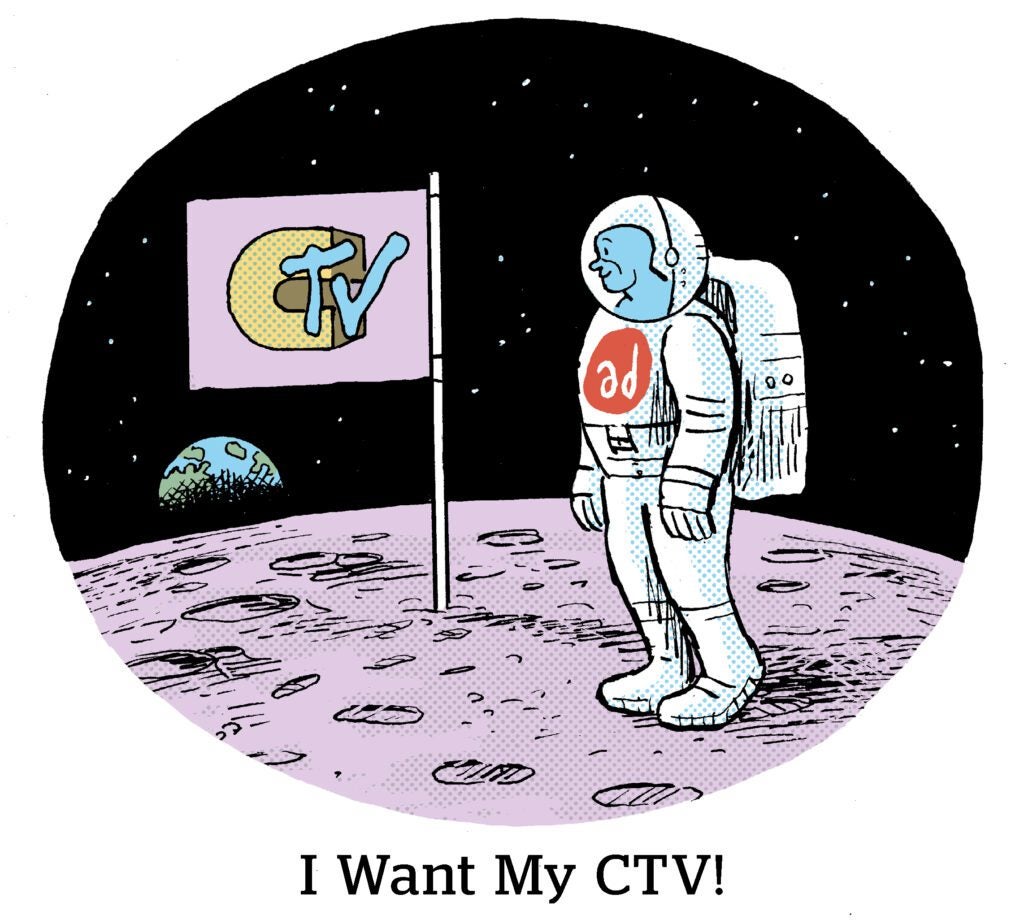Here’s today’s AdExchanger.com news round-up… Want it by email? Sign up here.
The Price Of Being Upfront
TV advertisers and publishers are in the throes of upfront negotiations.
Buyers think they have the upper hand, and they’re using it to push publishers for more competitive pricing, Variety reports. With more competition than ever before – particularly from Amazon entering the race for upfront dollars – CPMs just have to give.
Early discussions suggest that CPMs for less popular linear and streaming inventory are expected to drop roughly 3%.
It’s not much of a drop, but still an indicator that publishers are ceding more ground to advertisers to stay competitive. If even Netflix had to lower its prices from the sky-high CPMs it was asking for when it first launched ads, it’s only logical that prices overall will continue to normalize. Albeit slowly.
Sports content, however, is getting more expensive for advertisers. Demand is at an all-time high, which explains why CPMs are expected to jump as much as 5% this year.
We’ll see how both sides play ball.
The Video Store
Who needs video when Meta has the metaverse?
Just kidding. Despite the rebrand, Meta is fully invested in generating a higher rate of video consumption on its platform. Reels, anyone?
And these efforts have been working.
Last year, Facebook and Instagram users spent 60% of their time watching video posts rather than looking at photos, Marketing Brew reports based on a new eMarketer report. This marked the first time that video consumption was responsible for more than 50% of engagement, so it was a real milestone.
Aside from the inherent attraction of an ad platform with its own video supply, Meta’s aggressive approach to social video is also an attempt to stymie TikTok. Just like Facebook and Instagram stymied Snapchat by releasing their own disappearing Stories posts.
And soon, as always, once Meta has users hooked and its rival eases off – TikTok has some problems right now, if you haven’t heard – it will flip the switch to monetization. To that end, Instagram confirmed this week it’s testing an unskippable video ad unit.
Billion Here, Billion There
Streaming CTV budgets are limited by how difficult it is to gain new or exclusive supply.
To grow CTV supply, Netflix or Disney+ must add subscribers, which is expensive and challenging. The other alternative is to serve ads more frequently, which nobody wants. Broadcasters also can’t just flip from linear advertising to data-driven CTV, because their content is watched by cable viewers and ad rights are still parceled off to TV manufacturers, streaming platforms like Roku or Fire TV, satellite services, local TV distributors, internet service providers, etc.
Which is why it’s a potentially big deal that Apple has held talks with China Mobile, a mobile and set-top box provider owned by the Chinese government, to allow Apple TV+ in China, The Information reports. No other American streaming service is available in the country.
It’s unclear whether ad revenue is in play, but a carriage deal with China Mobile would open up more than a billion potential Chinese subscribers to Apple TV+.
China is a huge and rare net-new pool of potential subscribers in a category where growth is a hard and uphill slog.
But Wait, There’s More!
Paramount Global agrees to a merger with Skydance Media. [CNBC]
Google’s Chief Privacy Officer Keith Enright and head of competition law Matthew Bye are leaving the company. [Forbes]
Advertisers aren’t sold on Netflix’s pricing for Christmas Day NFL games. [Variety]
Meanwhile, Max, Spotify and Peacock are raising the price of their ad-free subscription tiers. [AV Club]
G/O Media sold The Onion in April (the “O” in its name) and now it’s selling Gizmodo (the “G”) to French media firm Keleops. Guess G/O no longer stands for anything? [Adweek]
Why brands see Facebook groups as a low-cost way to foster community. [Modern Retail]
The case for and against The Trade Desk’s top 100 list. [Digiday]
You’re Hired!
DISQO hires Neil Graham as CRO. [release]
Mediavine builds out its c-suite with new promotions, including elevating Amanda Martin to CRO. [release]
Roku announces new ad sales leaders: Sarah Harms as VP of advertising marketing and Sal Candela as VP of global agency partnerships. [Adweek]













